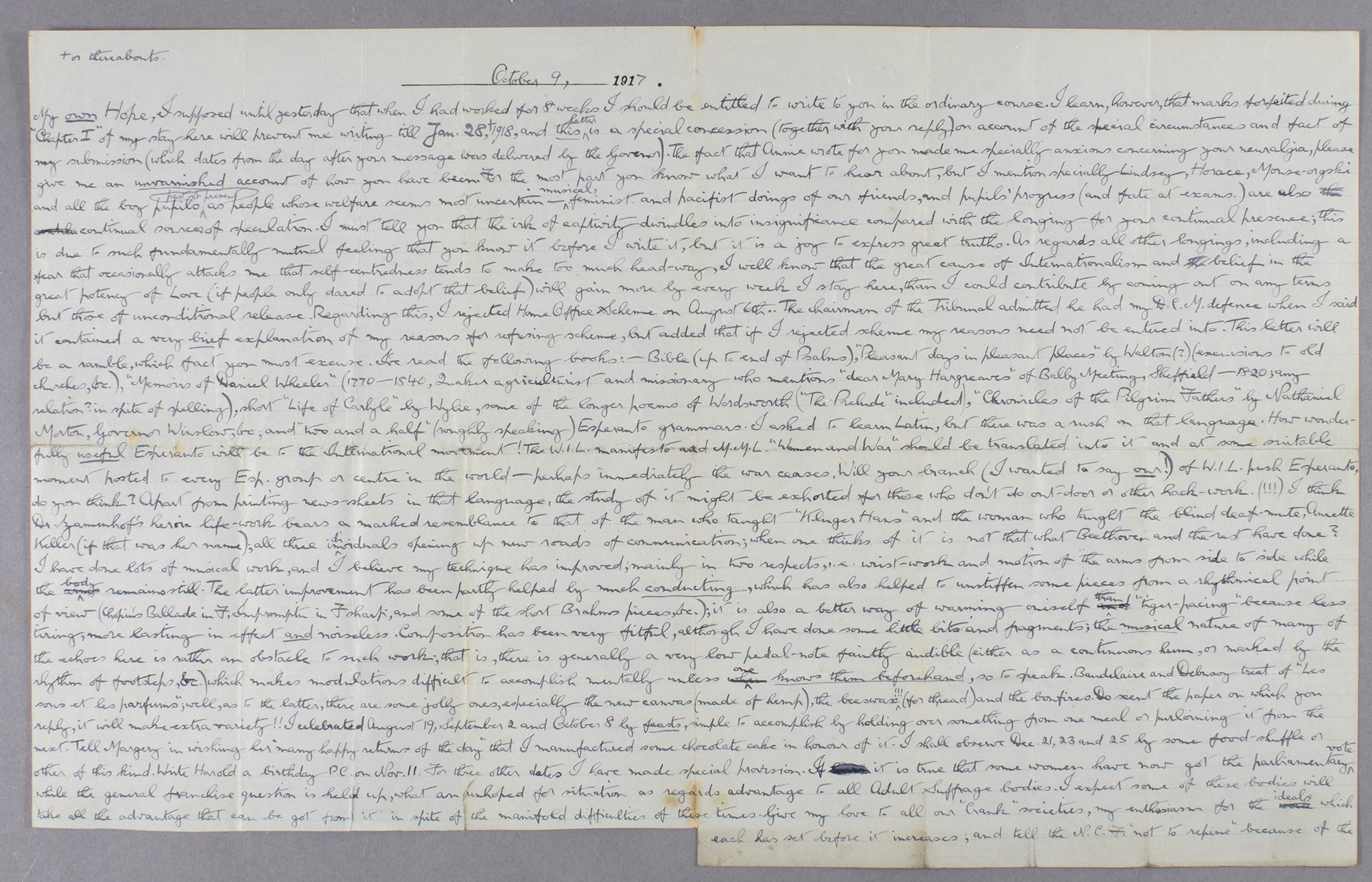Paris-Manchester 1918
Conservatoires in time of war
9th October 1917 (Frank Merrick)
Frank writes to his wife Hope Squire about life in prison, enquires about his piano students’ progress and describes his piano and conducting practice from his cell.
Credit: University of Bristol Library, Special Collections (DM2103)
Transcription
Re frequency of letters. Not allowed to write again until January.
Quote ‘Please give me an unvarnished account of how you have been. For the most part, you know what I want to hear about, but I mention specifically Lindsey, Horace, Mouse-orgski, and all the boy pupils past and present, as people whose welfare seems most uncertain – musical, feminist and pacifist doings of our friends, and pupils’ progress (and fate at exams) are also continual sources of speculation.’ I must tell you that the irk of captivity dwindles into insignificance compared with the longing for your continual presence; this is due to such fundamentally mutual feeling that you know it before I write it, but it is a joy to express great truths. As regards all other longings, including a fear that occasionally attacks me that self-centredness tends to make too much headway, I well know that the great potency of Love (if people only dared to adopt that belief), will gain more every week I stay here, than I could contribute by coming out on any terms but those of unconditional release…
Practising and conducting in prison – Chopin and Brahms
I have done lots of musical work, and I believe my technique has improved, mainly in two respects, ie. wrist work and motion of the arms from side to side while the body remains still. The latter improvement has been helped by much conducting, which has also helped to unstiffen some pieces from a rhythmical point of view (Chopin’s Ballade in F; Impromptu in F# and some of the short Brahms pieces etc.); it is also a better way of warming oneself than “tiger-pacing” because less tiring, more lasting in effect and noiseless. Composition has been very fitful although, I have done certain bits and fragments; the musical nature of many of the echoes here is rather an obstacle to such work; that is there is generally a very low pedal-note faintly audible, (either as a continuous hum or marked by the rhythm of footsteps etc.) which makes modulations difficult to accomplish mentally unless one knows them beforehand, so to speak.
[Mentions Baudelaire and Debussy ‘Les sons et les parfums’ as a treat]
Women and parliamentary vote: some women can vote.




